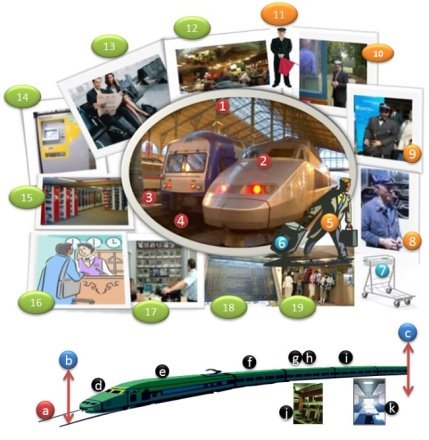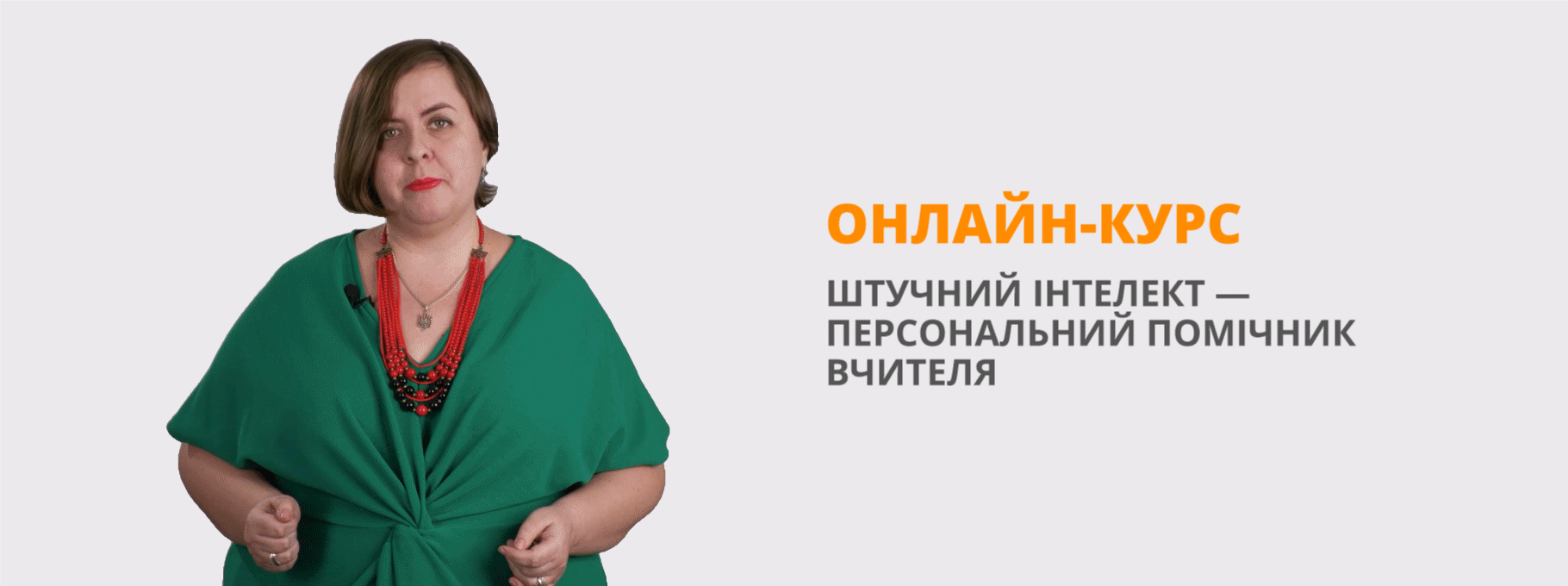Ділова подорож. На вокзалі.
Тема: Ділова подорож. На вокзалі.
Мета: Розширити словниковий запас студентів новими словами і виразами, які можуть бути використані на вокзалі.
Студент повинен:
знати лексичний мінімум ділових подорожей, слова і вирази, які можуть бути використані на вокзалі;
вміти оперувати лексичним мінімумом з теми, реалізувати свої комунікативні наміри та розуміти комунікативні наміри співрозмовника в типових ситуаціях на вокзалі.
Література та електронні ресурси:
- Іноземна (англійська) мова (за професійним спрямуванням). Частина 2. Завдання для практичних занять для студентів кооперативних технікумів і коледжів / Уклад.: Мартинчук О.М. – К.: НМЦ «Укоопосвіта», 2014.
- At a Railway Station / http://lengish.com/dialogs/dialog-3.html
Забезпечення заняття: опорний конспект, картки із завданнями, посібник, планшетний комп’ютер.
Хід заняття
- Look at the picture and translate in Ukrainian the following words and word combinations
|
|
-
 The railway station
The railway station
- The train
- The platform
- The (railway) track
- A passenger
- Luggage
- The (luggage) trolley
- The railwayman
- The ticket inspector
- The guard
- The station master
- The station buffet
- The waiting room
- The ticket machine
- The left luggage locker
- Information desk
- The lost property office
- The arrival / departure board
- The ticket office
- The rail / the track
- The head / end of the train
- The rear of the train
- The locomotive
- The luggage (postal) van
- The carriage
- The buffet car
- The dining car
- The sleeper
- The compartment
- The couchettes / berths
My tickets
A ticket
A half price ticket
A reduced rate
A single ticket
A return ticket
A season ticket
A railcard
(First) class
Standard class
To punch
- TEST Complete the letter.
- Dear Andy. I'd be delighted to accept your invitation and am going to reserve a __________________ to London.
[ ]season ticket [ ]return ticket [ ]train
- I'll take an overnight __________________ train
[ ]car rail [ ]motor rail [ ]motorail
- which __________________
[ ]calls to [ ]calls at [ ]call at [ ]call to
- all the __________________ between Inverness and London but that doesn't matter as I will probably be sleeping anyway.
[ ]stations [ ]sleepers [ ]carriages
- It __________________ at 7.00 in the morning.
[ ]goes [ ]enter in station [ ]arrives
- We could put the __________________
[ ]lugages [ ]lugage [ ]lugages [ ]luggage
- in the __________________
[ ]dining car [ ]couchettes [ ]baggage lockers
- and go for breakfast at the __________________. I'll collect my car later.
[ ]ticket office [ ]station buffet [ ]lost property office
- I don't know which platform the train will arrive at but you should find it written on the __________________.
[ ]arrival board [ ]guard [ ]track
- I hope I won't do the same thing as last time; I forgot my __________________
[ ]railcard [ ]first card [ ]passenger
- and didn't get my __________________.
[ ]card composted [ ]ticket punched [ ]luggage punched
- The __________________ gave me a fine in spite of my apologies.
[ ]station master [ ]ticket inspector [ ]railwayman
13) I'll have a meal before I leave because at night the __________________ is closed. [ ]restaurant car [ ]postal van [ ]couchettes car
14) When I arrive at the __________________
[ ]train [ ]railway [ ]platform
15) try to remember to get a __________________ for me, it will be easier.
[ ]luggage trolley [ ]luggages trolley [ ]luggage cady
16) I am going to book a __________________
[ ]departure board [ ]reduce rate [ ]compartment
17) at the __________________ of the train.
[ ]lead [ ]locomotive [ ]headend
I'm looking forward to meeting you again. Kind regards. Wallis
ANSWERS: 1) return ticket 2) motorail 3) calls at 4) stations 5) arrives 6) luggage 7) baggage lockers 8) station buffet 9) arrival board 10) railcard 11) ticket punched 12) ticket inspector 13) restaurant car 14) platform 15) luggage trolley 16) compartment 17) headend
III. Read and discuss the text
At the railway station
It’s common knowledge that nowadays people travel a lot. They travel On business and for pleasure, about the country and abroad. Those who wish to travel have at their disposal various means of transport: express trains and big ships, cars and jet airplanes.
Although aircraft are faster and, some people say, more convenient, the railway is still one of the most popular means of travel. First of all, the railway tickets are cheaper. And there are people who don’t like flying, and there are others who enjoy travelling by train more than by plane.
With a train you have speed, comfort and pleasure combined. From the comfortable corner seat of a carriage you have a splendid view of the countryside. If you are hungry you can have a meal in the dining-car or the buffet-car and if the journey is long you can have a comfortable bed in a sleeper.
A big railway station is a very busy and interesting place. There are a lot of platforms at which trains come in and go out. A train is standing at one of the platforms ready to leave. The porters are very busy carrying luggage to the train or pushing it on their trucks. On another platform a train has just come in. Some passengers are getting out, others are getting in. Those who haven’t bought their tickets in advance are waiting in queues at the booking-office. At the bookstalls people are choosing books, magazines and newspapers for the journey. At the cloak-room or luggage office some people are leaving and taking their luggage.
There are a lot of signs in a big railway station. You may see ENTRANCE and EXIT. There is also a WAITING ROOM where you can relax until it is time to board your train. If you are hungry or thirsty you’ll go to the REFRESHMENT ROOM. If you don’t know the number of the platform from which your train leaves, look for the signs ARRIVALS and DEPARTURES. They will tell you the number of the platform.
When you arrive in a large town you may leave your heavy luggage at the station. In this case you will look for the CLOAK ROOM or LUGGAGE OFFICE.
If you have lost something you need to find LOST PROPERTY OFFICE. If you find anything, if it is a small item like glasses or umbrella, you can take them to the lost property office, too. If it is big, something like a parcel or a suitcase, report it to the POLICE OFFICE, never touch it yourself.
You will also see the sign BOOKING OFFICE. This is where you buy your ticket. If you don’t know the time or the platform your train leaves from you’ll go to the INQUIRY OFFICE or the INFORMATION BUREAU.
Answer the questions.
- What means of travel are at travellers’ disposal?
- Why is railway still a very popular means of transport?
- What is convenient in travelling by train?
- Why is a railway station a busy place?
- What signs can you see at a railway station and what do they mean?
|
- Yes, sir? |
|
- First-class return to Glasgow. |
|
- Day return? |
|
- No. I’m going for the weekend. |
|
- A weekend return is Ј 7.66, sir. |
|
- Thank you. |
|
- Thank you, sir. |
|
- Could you tell me which platform the 13.30 leaves from? |
|
- Yes, platform 5. |
|
- Thank you. |
Dialogue 2
|
- Which platform for Motherwell, please? |
|||
|
- Platform 14, right up and down, underground level. |
|||
|
- When does the next train leave, please? |
|||
|
- 10.30, from Glasgow Central. |
|||
|
- When does it get in? |
|||
|
- You will be in Motherwell at 11.04. It takes roughly about half an hour to get there. |
|||
|
- Do I have to change? |
|||
|
- No, you needn’t. It’s a short distance. |
|||
|
- How much is the ticket? |
|||
|
- Single or return? |
|||
|
- Both. |
|||
|
- One single costs $ 20. The normal return ticket costs double the single fare but. |
|||
|
- You can buy a day return, which is cheaper. |
|||
|
- Thank you very much. |
|||
|
- It’s my pleasure.
Dialogue 3 |
|||
|
When does the London train leave, please? |
|
||
|
- 9.25. Platform 3. |
|
||
|
- What time does it reach London? |
|
||
|
- You should be there at 11.31, but you may be a bit late. |
|
||
|
- Do I have to change? |
|
||
|
- Yes. You change at Lewes and East Croydon |
|
||
Dialogue 4
|
- I want a ticket to Bern, second-class, please, |
|
- Single or return? |
|
- Return, please. |
|
- Sixty-five pounds, please. Five pounds change, thank you. |
|
- Could you tell me what time the next train is? |
|
- 8 o’clock, platform 12. If you hurry you’ll just catch it. |
|
- Thanks.
|


про публікацію авторської розробки
Додати розробку
